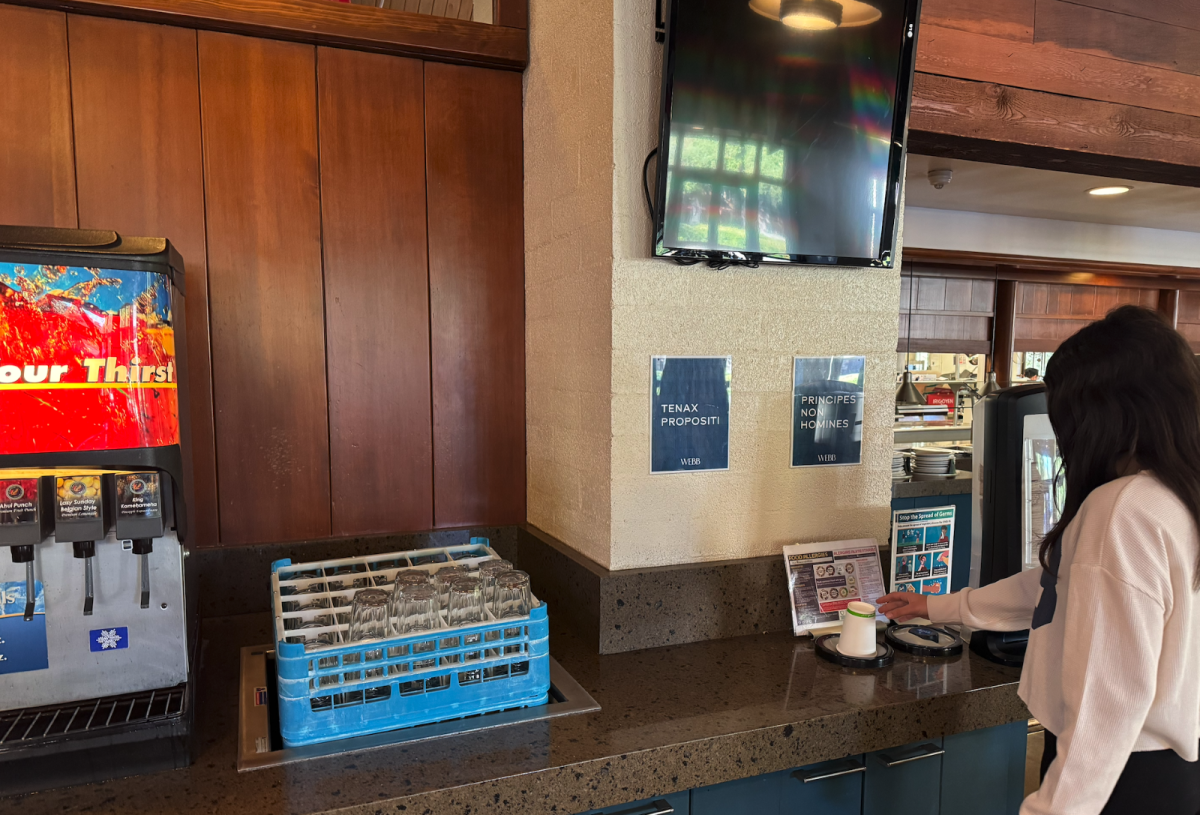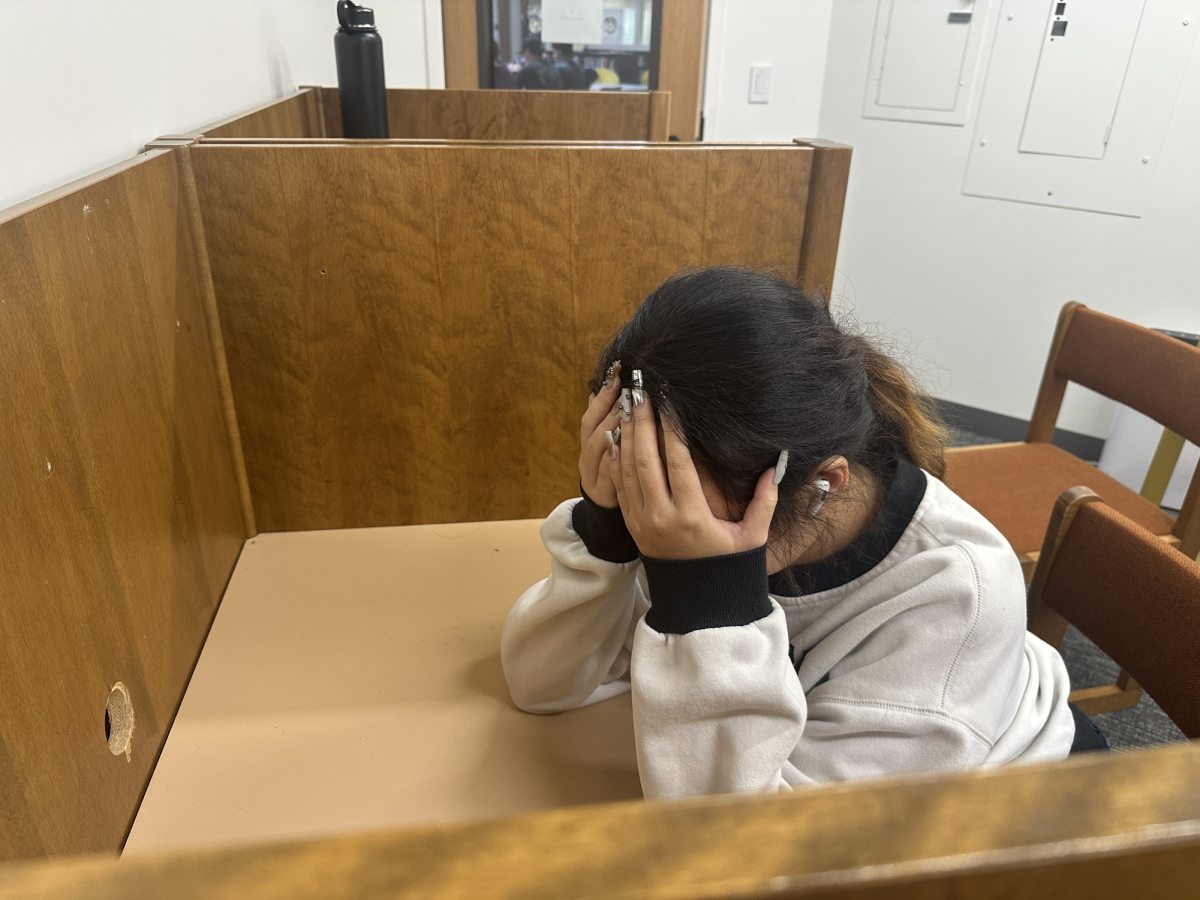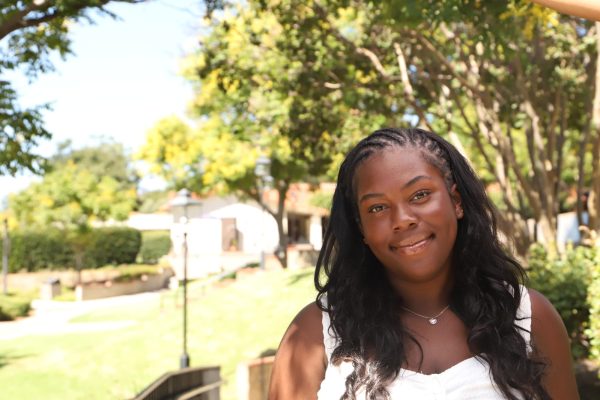On the week of November 7th, we as a community tossed over 6,000 disposable cups — a staggering number that reflects a deeper issue: our community’s collective carelessness toward sustainability. This isn’t not just an environmental crisis; it is a wake-up call. Each one of us is complicit in this waste, from the unnecessary paper cups we grab without thinking to the piles of uneaten food we scrape into the trash.
I came to realize the gravity of the situation when Ken Rosenfeld, Dean of Student Life, sent an email on November 7th to the community about the overwhelming cup usage, urging everyone to do their part in reducing waste. Just a week later, on November 15th, he sent a follow-up email, reporting that the number of cups had decreased to 3,700 — a 38% reduction. While that was an improvement, it still felt too high, especially considering the fact that glass cups are available in the dining hall.
The news came to Dean Rosenfeld through a phone call from Armando Amezcua, Director of Food Services, who works closely with Dean Rosenfeld on many campus initiatives. Normally, Mr. Amezcua would send an email or a text, but this time, he called — an indication that the situation was far more urgent than usual.
“Paper cups should hardly be used,” Dean Rosenfeld said. “There are no excuses when we have a better, reusable option right in front of us.”
Dean Rosenfeld’s statement underscores the importance of choosing sustainable alternatives when they are readily available. This sentiment resonates with students like Qier Wang (’27), who had an eye-opening realization about how ingrained disposable habits can be.
Qier brought a glass cup of water to a friend. When her friend asked why she chose a glass cup, Qier was confused, assuming it was the most logical choice in the dining hall. To her surprise, her friend admitted that she had never used a glass cup during her time at Webb.
“I told her she’s the reason the 6,000 cups are used!” Qier said. “From now on, I will make sure she uses glass cups.”
This conversation made Qier aware of how widespread the use of disposable cups was, and how other students’ actions could contribute to the problem. In addition, Mr. Rosenfeld highlighted the community’s poor management of plates and utensils.
“Many students take forks and plates and don’t return them, leave them on tables, or even toss them in the trash,” Dean Rosenfeld said.
The overconsumption of paper cups not only contributes to unnecessary waste but also places a financial burden on the school. Dean Rosenfeld explained how Mr. Amezcua often must reorder hundreds of plates and utensils, and the fancy blue-patterned plates are particularly expensive.
“Every time you throw away a plate or use more paper cups than necessary, you are contributing to financial loss,” Dean Rosenfeld said. “Students love to complain about where tuition money is going —it’s literally going in the trash.”
These wasteful habits are more than just environmental concerns; they represent a bigger issue of disregard for the resources Webb provides. These actions are not only unsustainable but financially irresponsible. If we were more mindful, the funds used to replace stolen or discarded plates, utensils, and other resources could be reallocated toward making more fun student activities and events or upgrading other facilities.
The disappearance of the green to-go boxes at Webb is another example of how communal carelessness can undermine sustainability efforts. These boxes were not only an eco-friendly alternative but also a privilege extended to students. While Webb could have required everyone to purchase their own reusable containers, they generously provided them, washed them, and returned them for repeated use. It was a system of convenience designed to make sustainable choices effortless for the community. However, many failed to uphold the responsibility of returning the boxes back to the dining hall.
“The green to-go boxes are so expensive, and we went through thousands,” Dean Rosenfeld said. “It costed thousands to replace them all because the community wasn’t taking care of them.”
Many students either kept the boxes or threw them away, leading to a rapid depletion of the supply. Restocking became unsustainable and financially burdensome, forcing Webb to cease providing them altogether.
This outcome serves as a reminder that privileges like the green to-go boxes require collective responsibility. A system designed to make sustainable choices easy for everyone was taken down because too many choose convenience over care.
Webb has made commendable efforts to foster sustainability, from offering glass cups in the dining hall to providing reusable to-go boxes and tracking waste through their own trash truck. These initiatives are designed to make it easier for the community to make sustainable choices. However, the lack of collective responsibility from both students and faculty undermines these efforts.
When we continue to mismanage plates and utensils, fail to return reusable items, or throw away perfectly good food, we directly contribute to the depletion of resources, forcing Webb to spend money replacing what we carelessly discard. So, when you complain about where your tuition is going, you need to take a long, hard look at how much of it is being wasted on replacing what you’ve thrown away. The solution is not more initiatives — it is the community stepping up to embrace the responsibility that comes with the privileges Webb provides. Until we do, we cannot expect real change.







![Many Webb students spend their free time in the library watching a popular TV show like Riverdale and Euphoria. “Based off what I’ve seen, like in Euphoria, because the actors are older, they don't showcase an actual high school life properly,” Sochika Ndibe (‘26) said. “Since [the actors] are older [and] playing a teenager, from a girl’s perspective, it is going to make you think you should look more developed at a young age.” The actor, who plays Veronica Lodge, was 22 years old at the time of filming.](https://webbcanyonchronicle.com/wp-content/uploads/2025/03/Antecol-Media-affects-how-society-functions-graphic-1200x900.png)







